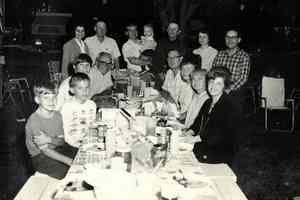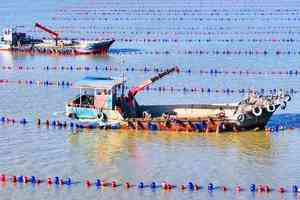In these politically charged times, it's hard for any legislative body to make progress on the most mundane of matters. And when powerful forces that fund the political machine are allied against the public will, elected officials seem even less interested in taking a stand. The fight to restore stream access to the public in Utah is just such a case study.
In 2008 the Utah Supreme Court ruled in Conatser v. Johnson that the public has a right to “engage in all recreational activities that utilize the water”. But this wasn't the controversial piece of the ruling. The court further clarified the public right by saying that the right was not limited to “activities that can be performed upon the water.” It affirmed the rights of sportsmen, including anglers, to wade in public waters even if this meant touching stream bottoms that were privately owned.
Some property owners saw the Conatser ruling as a taking of something they owned. David Van Dyke, General Manager of The Lodge at Red River Ranch, wrote an email to Rep Dean Sanpei (R-Provo) in which he stated the Supreme Court ruling "effectively took private property and gave it to the general public." The state legislature seemed to agree. In 2010, Rep Kay McIff (R-Richfield) sponsored HB 141 to remedy the situation.
HB 141, ironically titled "Recreational Use of Public Water on Private Property", was actually about limiting the recreational rights affirmed by the Conatser ruling. It passed and changed the law defining the public's right to use the waters for recreation. It effectively limited people to only floating certain rivers.
Sportsmen who support the court's Conatser ruling see it differently. The Utah Stream Access Coalition (USAC) was formed to provide a rallying point for the diverse body of sportsmen and outdoor enthusiasts interested in retaining access to Utah's public waters. USAC has gone down two parallel paths: lawsuits and legislation.
USAC promoted HB 37, sponsored by Rep. Dixon Pitcher (R-Ogden), which was seen as a compromise bill by its supporters. Largely based upon Idaho's successful stream access laws, the law sought to balance the rights of land owners and the public. This bill was tabled by the legislature in February, along with an even more restrictive public access bill sponsored by Rep. McIff, pending the outcome of two lawsuits filed by the USAC.
The first suit, the "Provo Case", seeks to establish that in passing HB141 the legislature violated the Utah Constitution. According to Kris Olson, President of the Utah Stream Access Coalition, "If the legislature does not act for the benefit of the public then they're in violation of the public trust doctrine." USAC asserts that in reducing the public easement to public resources in favor of land owners the legislature violated this doctrine. While initial rulings in the Provo case did not negate the HB 141 law, the court has yet to rule on the public trust doctrine issue. Both sides will be in court this spring to argue their positions.
The second lawsuit, the "Weber Case" is perhaps the more far reaching of the two from a landowner perspective. It seeks to have the stream beds on navigable waterways, currently privately owned in some cases, to be declared public land. This would reopen access to over 2,700 miles of streams and fundamentally change the relationship between landowners and the streams that cross their land. Both lawsuits should see rulings in the coming months.
The legal wrangling in Utah may seem a distant issue for many anglers but the issue is worth tracking. Whether it is mining, drilling, or ranching there is an increasing threat of public resources being reserved for private use. Those seeking to privatize the public way are very effective at generating outrage at the trampling of personal rights when those rights, as indicated by the Conatser ruling, don't actually exist.
In Utah, the legislature now waits on the courts. Regardless of the rulings, it's likely this matter will not close anytime soon. The legislature could still act in either direction and lawyers seeking fees will be available for a return to court.
What it really comes down to is public officials doing their jobs. As Kris Olson said, "It's going to have to come from the legislature, ultimately." Elected officials won't be able to dodge their responsibility. Unfortunately, it's anybody’s guess which way they’re going to go.





























Comments